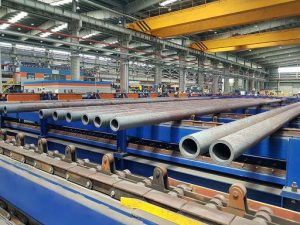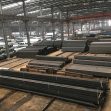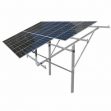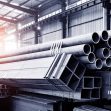The steel industry has ultra-low emissions
The steel industry has been a cornerstone of global development for centuries, providing the essential foundation for infrastructure, manufacturing of rectangular hollow section, and countless other sectors. However, concerns about its environmental impact have been raised due to its significant contribution to greenhouse gas emissions. In recent years, the steel industry has taken remarkable strides towards reducing its environmental footprint and has emerged as a leader in implementing innovative technologies to achieve ultra-low emissions.
Traditionally, steel production has been associated with high levels of carbon dioxide (CO2) emissions, primarily resulting from the use of coal and coke as energy sources. Recognizing the urgent need to combat climate change and promote sustainable practices, the industry has undergone a transformative journey to adopt cleaner and greener production methods.
One of the key advancements in the steel industry is the transition from conventional blast furnaces to electric arc furnaces (EAFs). EAFs utilize electricity to melt scrap steel and produce new steel, eliminating the need for coal and coke. This shift significantly reduces CO2 emissions associated with the primary steelmaking process. EAFs also contribute to the circular economy by utilizing recycled steel, further minimizing the industry’s environmental impact.

Moreover, the steel industry is investing in breakthrough technologies such as carbon capture, utilization, and storage (CCUS). CCUS technologies capture CO2 emissions from steel plants and store or repurpose them rather than releasing them into the atmosphere. By capturing and storing CO2 underground or utilizing it for enhanced oil recovery or manufacturing processes of structural steel pipe, the steel industry is taking proactive steps to mitigate its carbon footprint.
Additionally, the development of hydrogen-based steel production is gaining momentum. Hydrogen, when used as a clean energy source, produces only water vapor as a byproduct. Steel manufacturers are exploring hydrogen-based direct reduction processes, where iron ore is reduced using hydrogen instead of coal, resulting in near-zero emissions. This innovative approach has the potential to revolutionize the steel industry of mild steel tube, paving the way for a carbon-neutral future.
Collaboration between steel producers, governments, and research institutions is crucial to driving further advancements in emission reduction. Initiatives such as the Steel Zero initiative, led by the Climate Group, encourage steel companies to commit to reaching net-zero emissions by 2050. Such collective efforts foster knowledge-sharing, technological innovation, and the implementation of best practices across the industry.
The steel industry’s commitment to achieving ultra-low emissions extends beyond production processes. Efforts are being made to optimize energy efficiency, reduce water consumption, and improve waste management throughout the value chain of black iron steel pipe. By adopting sustainable practices in all aspects of operations, the industry aims to minimize its environmental impact holistically.
Tel: +86 18202256900 Email: steel@tjdpbd.com










